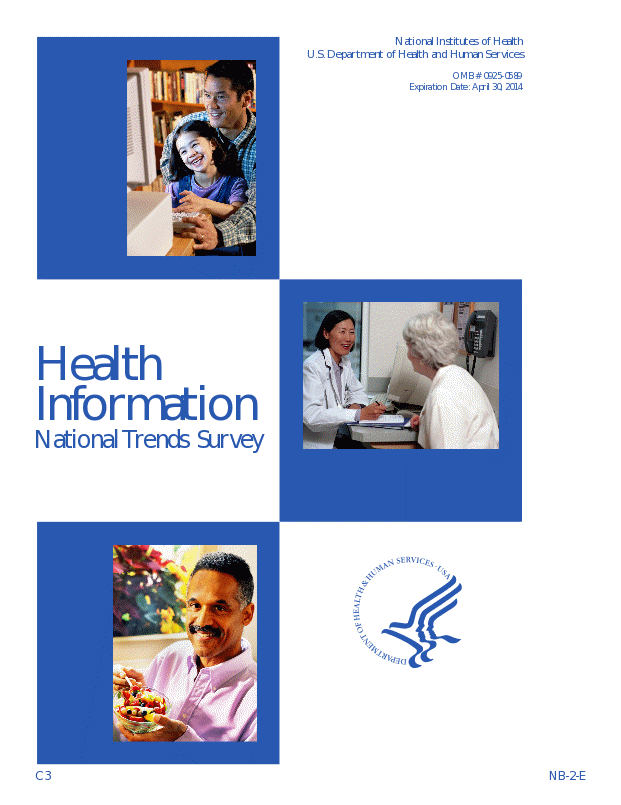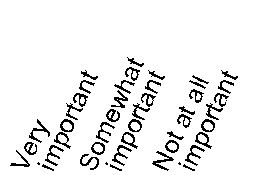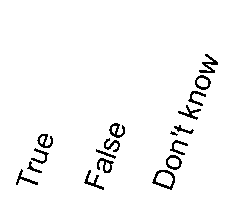Attach A-1_Instrument-to-be-tested_English-REV
Attach A-1_Instrument-to-be-tested_English-REV.docx
Questionnaire Cognitive Interviewing and Pretesting (NCI)
Attach A-1_Instrument-to-be-tested_English-REV
OMB: 0925-0589
FDA


1. Is there more than one person age 18 or older living in this household?


Yes

No GO TO A1 on the next page
2. Including yourself, how many people age 18 or older live in this household?
3. The adult with the next birthday should complete this questionnaire. This way, across all households, HINTS will include responses from adults of all ages.
4. Please write the first name, nickname or initials of the adult with the next birthday. This is the person who should complete the questionnaire.
Si prefiere recibir la encuesta en español, por favor llame 1-888-738-6812

STATEMENT OF PRIVACY: Collection of this information is authorized by The Public Health Service Act, Sections 411 (42 USC 285 a) and 412 (42 USC 285a-1.a and 285a1.3). The purpose of this data collection is to evaluate whether the survey questions are easy to understand. The results of the data collection will be used to improve the survey instrument. Rights of study participants are protected by The Privacy Act of 1974. Participation is voluntary, and there are no penalties for not participating or withdrawing from the study at any time. Refusal to participate will not affect your benefits in any way. The information collected in this study will be kept private under the Privacy Act and will only be seen by people authorized to work on this project. The report summarizing the findings will not contain any names or identifying information. Identifying information will be destroyed when the project ends.
NOTIFICATION TO RESPONDENT OF ESTIMATED BURDEN: Public reporting burden for this collection of information is estimated to average 90 minutes per response, including the time for reviewing instructions, searching existing data sources, gathering and maintaining the data needed, and completing and reviewing the collection of information. An agency may not conduct or sponsor, and a person is not required to respond to, a collection of information unless it displays a currently valid OMB control number. Send comments regarding this burden estimate or any other aspect of this collection of information, including suggestions for reducing this burden to: NIH, Project Clearance Branch, 6705 Rockledge Drive, MSC 7974, Bethesda, MD 20892-7974, ATTN: PRA (0925-0589). Do not return the completed form to this address.
B: Using the Internet to Find Information |
B1. Do you ever go on-line to access the Internet or World Wide Web, or to send and receive e-mail?


Yes

No GO TO C1 on page 4
B2. When you use the Internet, do you access it through...
|
Yes |
No |
|
|
|
a. A regular dial-up telephone line |
|
|
b. Broadband such as DSL, cable or FiOS |
|
|
c. A cellular network (i.e., phone, 3G/4G) |
|
|
d. A wireless network (Wi-Fi) |
|
|

B3. Do you access the Internet any other way?

Yes – Specify
No
B4. In the past 12 months, have you used the Internet to look for information about cancer for yourself?
Yes
No
B5. Is there a specific Internet site you like to go to for information about cancer?


Yes

No GO TO C1 on page 4
B6. Specify which Internet site you especially like as a source of information about cancer:

X
B7. Please indicate if you have each of the following.

Mark all that apply.
Tablet computer like an iPad, Samsung Galaxy, Motorola Xoom, or Kindle Fire



GO TO B10
in the
next column
Smartphone, such as an iPhone, Android, Blackberry, or Windows phone
Cell phone

I do not have any of the above
B8. Now thinking about how you might use your tablet, smartphone, or cell phone to help manage your health.
On your tablet, smartphone, or cell phone, do you happen to have any software applications or “apps” that help you track or manage your health, or not?
Yes
No
Don’t know
B9. In which of the following ways, if any, has using an app or apps that helps you track or manage your health on your tablet, smartphone, or cell phone affected your own health care routine? Has it...
|
Yes |
No |
|
|
|
a. Helped you achieve a health related goal such as quitting smoking, losing weight, or increasing physical activity? |
|
|
b. Affected a decision about how to treat an illness or condition? |
|
|
c. Changed your overall approach to maintaining your health? |
|
|
d. Led you to ask a doctor new questions, or to get a second opinion from another doctor? |
|
|
B10. In the past 12 months, have you used any of the following to exchange medical information with a health care professional?
Mark all that apply.
Text message
App on a smart phone or mobile device
Video conference (e.g., Skype, Facetime, etc.)
Social media (e.g., Facebook, Google+, CaringBridge, etc.)
Fax
None
B11. How willing would you be to exchange the following types of medical information with a health care provider electronically through your mobile phone or tablet?


|
|
|
|
|
a. Appointment reminders |
|
|
|
|
b. General health tips |
|
|
|
|
c. Medication reminders |
|
|
|
|
d. Lab/test results |
|
|
|
|
e. Diagnostic information (e.g., medical illnesses or diseases) |
|
|
|
|
f. Vital signs (e.g., heart rate, blood pressure, glucose levels, etc.) |
|
|
|
|
g. Lifestyle behaviors (e.g., physical activity, food intake, sleep patterns, etc.) |
|
|
|
|
h. Symptoms (e.g., nausea, pain, dizziness, etc.) |
|
|
|
|
i. Digital images/video (e.g., photos of skin lesions) |
|
|
|
|
C: Your Health Care |
C1. Not including psychiatrists and other mental health professionals, is there a particular doctor, nurse, or other health professional that you see most often?
Yes
No
C2. Do you have any kind of health care coverage, including health insurance, prepaid plans such as HMOs or government plans such as Medicare?
Yes

No GO TO C6 below
C3. Is that coverage through a health exchange or marketplace such as healthcare.gov?
Yes

No GO TO C6 below
C4. Is there a monthly premium for this plan?
Yes

No GO TO C6 below
C5. Is the cost of the premium subsidized based on your family income?
Yes
No
C6. About how long has it been since you last visited a doctor for a routine checkup? A routine checkup is a general physical exam, not an exam for a specific injury, illness, or condition.
Within past year
(anytime less than 12
months ago)
Within past 2 years
(1 year but less
than 2 years ago)
Within past 5 years
(2 years but less
than 5 years ago)
5 or more years ago
Don't know
Never
C7. In the past 12 months, not counting times you went to an emergency room, how many times did you go to a doctor, nurse, or other health professional to get care for yourself?

None GO TO D1 on page 6
1 time
2 times
3 times
4 times
5-9 times
10 or more times
C8. The following questions are about your communication with all doctors, nurses, or other health professionals you saw during the past 12 months…
How often did they do each of the following: |
|
|||||
|
|
|
|
|
|
|
|
a. Give you the chance to ask all the health-related questions you had? |
|
|
|
|
|
|
b. Give the attention you needed to your feelings and emotions? |
|
|
|
|
|
|
c. Involve you in decisions about your health care as much as you wanted? |
|
|
|
|
|
|
d. Make sure you understood the things you needed to do to take care of your health? |
|
|
|
|
|
|
e. Explain things in a way you could understand? |
|
|
|
|
|
|
f. Spend enough time with you? |
|
|
|
|
|
|
g. Help you deal with feelings of uncertainty about your health or health care? |
|
|
|
|
|
C9. In the past 12 months, how often did you feel you could rely on your doctors, nurses, or other health care professionals to take care of your health care needs?
Always
Usually
Sometimes
Never
C10. Overall, how would you rate the quality of health care you received in the past 12 months?
Excellent
Very good
Good
Fair
Poor
C11. In the past 12 months, have you talked to a doctor, nurse, or other health professional about any kind of health information you have gotten from the Internet?
Yes

No GO TO C13 in the next column
C12. In the past 12 months when you talked with a health care professional, how interested were they in hearing about the information you found on-line?
Very interested
Somewhat interested
A little interested
Not at all interested
C13. How often have you experienced discrimination, been prevented from doing something, or been hassled or made to feel inferior in any of the following situations:

|

|
|
|
|

|
a. At school? |
|
|
|
|
|
b. Getting hired or getting a job? |
|
|
|
|
|
c. At work? |
|
|
|
|
|
d. Getting housing? |
|
|
|
|
|
e. Getting medical care? |
|
|
|
|
|
f. Getting service in a store or restaurant? |
|
|
|
|
|
g. Getting credit, bank loans, or a mortgage? |
|
|
|
|
|
h. On the street or in a public setting? |
|
|
|
|
|
i. From the police or in the courts? |
|
|
|
|
|
D: Medical Records |
D1. As far as you know, do any of your doctors or other health care providers maintain your medical information in a computerized system?
Yes
No
D2. Please indicate how important each of the following statements is to you.

|

|
|
|
a. Doctors and other health care providers should be able to share your medical information with each other electronically |
|
|
|
b. You should be able to get to your own medical information electronically |
|
|
|
D4. How confident are you that safeguards (including the use of technology) are in place to protect your medical records from being seen by people who aren’t permitted to see them?
Having safeguards (including the use of technology) in place has to do with the security of your medical records.
Very confident
Somewhat confident
Not confident
D5. How confident are you that you have some say in who is allowed to collect, use, and share your medical information?
Having a say in who can collect, use, and share your medical information has to do with the privacy of your records
Very confident
Somewhat confident
Not confident
D6. Have you ever kept information from your health care provider because you were concerned about the privacy or security of your medical record?
Yes
No
D7. If your medical information is sent by fax from one health care provider to another, how concerned are you that an unauthorized person would see it?
Very concerned
Somewhat concerned
Not concerned
D8. If your medical information is sent electronically from one health care provider to another, how concerned are you that an unauthorized person would see it?
Electronically means from computer to computer, instead of by telephone, mail, or fax machine.
Very concerned
Somewhat concerned
Not concerned
D9. In the past 12 months, when getting care for a medical problem, was there a time when you were given online access to any part of your medical record by any of your health care providers?
Yes
No
D10. How much do you agree or disagree with the following statement?
Health care providers have measures in place that provide a reasonable level of protection for electronic medical records today.
Strongly agree
Somewhat agree
Somewhat disagree
Strongly disagree
D11. Have any of your health care providers or health insurers ever informed you that you could access your health information from your medical record through a secure website?
Yes

No GO TO D14 below
D12. Were you offered access to your online medical record by your…
|
Yes |
No |
|
|
|
a. health care provider? |
|
|
b. health insurer? |
|
|
D13. How many times did you access your online medical record through the website over the last 12 months?
1 to 2 times
3-5 times
6 to 9 times
10 or more times
None
D14. Were you given access to a family member’s medical record through a website?
Yes

No GO TO E1 in the next column
D15. How many times did you access your family member’s medical record through the website over the last 12 months?
1 to 2 times
3-5 times
6 to 9 times
10 or more times
None
E: Medical Research |
E1. Clinical trials are research studies that involve people. They are designed to test the safety and effectiveness of new treatments and to compare new treatments with the standard care that people currently get. Have you ever heard of a clinical trial?
Yes

No GO TO E4 below
Don’t know
E2. Did you hear about clinical trials from...
|
Yes |
No |
|
|
|
a. Doctor, nurse, or other medical professional? |
|
|
b. Family member or friend? |
|
|
c. Internet? |
|
|
d. A specific organization? |
|
|
e. Newspaper, television, or radio? |
|
|
f. A fictional t.v show, movie or book? |
|
|
g. An advertisement? |
|
|
h. A health fair? |
|
|
i. Some other source? |
|
|
j. I don’t know the source? |
|
|
E3. Have you ever participated in a clinical trial?
Yes
No
Don’t know
E4. If you were diagnosed with cancer, how likely is it that you would participate in a research study of a new treatment?
Very likely
Somewhat likely
Equally likely as unlikely
Somewhat unlikely
Very unlikely
E5. Genetic tests that analyze your DNA, diet and lifestyle for potential health risks are currently being marketed by companies directly to consumers. Have you heard or read about these genetic tests?
Yes
No
E6. How much do you think health behaviors like diet, exercise and smoking determine whether or not a person will develop each of the following conditions?

|

|
|
|
|
a. Diabetes/High blood sugar |
|
|
|
|
b. Obesity |
|
|
|
|
c. Heart disease |
|
|
|
|
d. High Blood Pressure/Hypertension |
|
|
|
|
e. Cancer |
|
|
|
|
E7. How much do you think genetics, that is characteristics passed from one generation to the next, determine whether or not a person will develop each of the following conditions?

|

|
|
|
|
a. Diabetes/High blood sugar |
|
|
|
|
b. Obesity |
|
|
|
|
c. Heart disease |
|
|
|
|
d. High Blood Pressure/Hypertension |
|
|
|
|
e. Cancer |
|
|
|
|
E8. There are many different types of medical research. How useful do you think the following types of research are to inform the medical decisions that you make?

|

|
|
|
|
a. Research where patients try an experimental new medication? |
|
|
|
|
b. Research where two or more medications are compared to see which works best? |
|
|
|
|
E9. More and more, people are getting involved in research in new ways beyond being a research subject. They are partnering with medical researchers to help decide what research is done and how it is done. For example, people can suggest important topics to study or how to report results to the public. This is sometimes called “patient engagement” in research.
|
Yes |
No |
Not sure |
|
|
|
|
a. Have you ever heard about “patient engagement” in medical research? |
|
|
|
b. Have you ever engaged in medical research in this way? |
|
|
|
c. Would you ever be interested in engaging in research this way? |
|
|
|
E10.How much do you agree or disagree with the following statement?
“Patient engagement” in medical research will make study findings more useful for medical decision-making.
Strongly agree
Somewhat agree
Somewhat disagree
Strongly disagree
E11. Another growing trend is for people who are not researchers to work together to generate new medical research they care about. For example, people on the same medical treatment may develop a way to document and share their experiences or they may seek out a researcher to study the problems they care about. This is sometimes called “citizen-led research”.
|
Yes |
No |
Not sure |
|
|
|
|
a. Have you ever heard about “citizen-led research”? |
|
|
|
b. Have you ever worked on “citizen-led research”? |
|
|
|
c. Would you be interested in working on “citizen-led research”? |
|
|
|
E12. How much do you agree or disagree with the following statement?
“citizen-led research” will make research useful for medical decision-making.
Strongly agree
Somewhat agree
Somewhat disagree
Strongly disagree
E13. Medical research can examine a variety of outcomes related to different treatment options. How useful are studies of the following outcomes for informing your medical decisions?

|

|
|
|
|
a. Mortality or death |
|
|
|
|
b. Physiological markers such as heart rate, blood pressure, or body mass |
|
|
|
|
c. Ability to function in daily life |
|
|
|
|
E14. Have you ever been in a medical research study where you got one of two treatments, such as medicines or surgery procedures?
Yes
No
L: Screening for Cancer |
L1. A vaccine to prevent HPV infection is available and is called the HPV shot, cervical cancer vaccine, GARDASIL®, or Cervarix®.
Has a doctor or other health care professional ever talked with you about the HPV shot or vaccine?
Yes
No
L2. There are a few different tests to check for colon cancer. These tests include:
A colonoscopy – For this test, a tube is inserted into your rectum and you are given medication that may make you feel sleepy. After the procedure, you need someone to drive you home.
A sigmoidoscopy – For this test, you are awake when the tube is inserted into your rectum. After the test you can drive yourself home.
A stool blood test – For this test, you collect a stool sample at home, and then provide it to a doctor or lab for testing.
Has a doctor ever told you that you could choose whether or not to have a test for colon cancer?
Yes
No
L3. Have you ever had one of these tests to check for colon cancer?
Yes
No
L4. Has a doctor ever told you there are different tests to detect colorectal cancer and discussed their pros and cons with you?
Yes
No

L5. The following questions are about discussions doctors or other health care professionals may have with their patients about the PSA test that is used to look for prostate cancer.
Have you ever had a PSA test?
Yes
No
L6. Has a doctor ever discussed with you whether or not you should have the PSA test?


Yes

No GO TO L8 below
L7. In that discussion, did the doctor ask you whether or not you wanted to have the PSA test?
Yes
No
L8. Did a doctor ever tell you that some experts disagree about whether men should have PSA tests?
Yes
No
L9. Has a doctor or other health care professional ever told you that...
|
Yes |
No |
|
|
|
a. The PSA test is not always accurate? |
|
|
b. Some types of prostate cancer are slow-growing and need no treatment? |
|
|
c. Treating any type of prostate cancer can lead to serious side-effects, such as problems with urination or having sex? |
|
|
L10. How much would you trust the following sources when they make recommendations about whether to use medical tests and exams such as colonoscopies, mammograms, and pap tests to check for early signs of cancer?

|

|
|
|
|
a. Cancer advocacy groups such as the American Cancer Society |
|
|
|
|
b. Government-appointed panel of experts |
|
|
|
|
c. Family member or friend |
|
|
|
|
d. News and news media |
|
|
|
|
e. Your primary care doctor |
|
|
|
|
f. An organization of medical professionals |
|
|
|
|
L11. As far as you know, which of the following statements are true or false about medical tests or exams that check for early signs of cancer?...


|
|
|
|
a. These tests can definitely tell that a person has cancer |
|
|
|
b. When a test finds something abnormal, more tests are needed to know if it is cancer |
|
|
|
c. When a test finds something abnormal, it is very likely to be cancer |
|
|
|
d. The harms of these tests and exams sometimes outweigh the benefits |
|
|
|
M: Your Cancer History |
M1. Have you ever been diagnosed as having cancer?


Yes

No GO TO M4

X
M2. What type of cancer did you have?
Mark all that apply.
Bladder cancer
Bone cancer
Breast cancer
Cervical cancer (cancer of the cervix)
Colon cancer
Endometrial cancer (cancer of the uterus)
Head and neck cancer
Hodgkin's lymphoma
Leukemia/Blood cancer
Liver cancer
Lung cancer
Melanoma
Non-Hodgkin lymphoma
Oral cancer
Ovarian cancer
Pancreatic cancer
Pharyngeal (throat) cancer
Prostate cancer
Rectal cancer
Renal (kidney) cancer
Skin cancer, non-melanoma

Stomach cancer

Other-Specify
M3. At what age were you first told that you had cancer?
-
Age
M4. Have any of your family members ever had cancer?
Yes
No
Not sure
M5. Did you ever receive any treatment for your cancer?
Yes

No GO TO M9 on the next page
M6. Which of the following cancer treatments have you ever received?
-
Yes
No


a. Chemotherapy (IV or pills)
b. Radiation
c. Surgery
d. Other
M7. About how long ago did you receive your last cancer treatment?


Still receiving treatment GO TO M10 below
Less than 1 year ago
1 year ago to less than 5 years ago


5 years ago to less than 10 years ago
10 or more years ago
M8. Did you ever receive a summary document from your doctor or other health care professional that listed all of the treatments you received for your cancer?
Yes
No
M9. Have you ever received instructions from a doctor or other health care professional about where you should return or who you should see for routine cancer check-ups after completing your cancer treatment?
Yes
No
M10. Were you ever denied health insurance coverage because of your cancer?
Yes
No
M11. Looking back, since the time you were first diagnosed with cancer, how much, if at all, has cancer and its treatment hurt your financial situation?
Not at all
A little
Some
A lot
M12. Have you ever participated in a clinical trial for treatment of your cancer?
Yes
No
Not sure
M13. Has a doctor or other member of your medical team discussed clinical trials as a treatment option for your cancer?
Yes
No
M14. At any time since you were first diagnosed with cancer, did any doctor or other healthcare provider ever discuss with you the impact of cancer or its treatment on your ability to work.
Discussed it with me in detail
Briefly discussed it with me
Did not discuss it at all
I don’t remember
I have not worked for pay at a job or business since being diagnosed with cancer
M15. Suppose you have an early stage cancer, what would be your preferred role in making a decision on the selection of cancer treatment?
I prefer to make the final selection about which cancer treatment I will receive.
I prefer to make the final selection of my cancer treatment after seriously considering my doctor’s opinion.
I prefer that my doctor and I share responsibility for deciding which cancer treatment is best for me.
I prefer that my doctor makes the final decision about which cancer treatment will be used, but seriously considers my opinion.
I prefer to leave all decisions regarding my cancer treatment to my doctor.
M16. Suppose you have an early stage cancer, what do you think the desirable level of family involvement is in deciding your cancer treatment?
I make the treatment decision on my own.
I make the treatment decision after hearing the family’s opinion.
My family makes the treatment decision after hearing the patient’s opinion.
My family makes the treatment decision on their own.
M17. Suppose you have an advanced cancer, what would be your preferred role in making a decision on the selection of cancer treatment?
I prefer to make the final selection about which cancer treatment I will receive.
I prefer to make the final selection of my cancer treatment after seriously considering my doctor’s opinion.
I prefer that my doctor and I share responsibility for deciding which cancer treatment is best for me.
I prefer that my doctor makes the final decision about which cancer treatment will be used, but seriously considers my opinion.
I prefer to leave all decisions regarding my cancer treatment to my doctor.
M18. Suppose you have an advanced cancer, what do you think the desirable level of family involvement is in deciding your cancer treatment?
I make the treatment decision on my own.
I make the treatment decision after hearing the family’s opinion.
My family makes the treatment decision after hearing the patient’s opinion.
My family makes the treatment decision on their own.

N: Beliefs About Cancer |

Think about cancer in general when answering the questions in this section.
N1. How likely are you to get cancer in your lifetime?
Very unlikely
Unlikely
Neither unlikely nor likely
Likely
Very likely
N2. Compared to other people your age, how likely are you to get cancer in your lifetime?
Much less likely
Less likely
About the same
More likely
Much more likely
N3. How much do you agree or disagree with each of the following statements?

|

|
|
|
|
a. It seems like everything causes cancer |
|
|
|
|
b. There’s not much you can do to lower your chances of getting cancer |
|
|
|
|
c. There are so many different recommendations about preventing
cancer, it's hard |
|
|
|
|
d. In adults, cancer is more common than heart disease |
|
|
|
|
N4. How likely is it that the average person your age will develop cancer in his or her lifetime?
Very unlikely
Unlikely
Neither unlikely or likely
Likely
Very likely
N5. How much do you agree or disagree with the statement: “I’d rather not know my chance of getting cancer.”
Strongly agree
Somewhat agree
Somewhat disagree
Strongly disagree
N6. Some people avoid visiting their doctor when they suspect they should. Would you say this is true for you or not true for you?
True
Not true
N7. How worried are you about getting cancer?
Not at all
Slightly
Somewhat
Moderately
Extremely
N8. How will your chances of getting cancer change as you get older?
Increase
Decrease
Stay the same
N9. How much do you agree or disagree with the statement: “If experts had conflicting opinions about a medical test or treatment, I would still be willing to try it.”
Strongly agree
Somewhat agree
Somewhat disagree
Strongly disagree
N10. Have you ever heard of 2-1-1- Information and Referral Search?
Yes
No
Not sure
N11. Have you ever used 2-1-1- Information and Referral Search?
Yes
No
Not sure
Thank you!

Please return this questionnaire in the postage-paid envelope within 2 weeks.
 If you have lost the
envelope, mail the completed questionnaire to:
If you have lost the
envelope, mail the completed questionnaire to:
HINTS Study, TC 1046F
Westat
1600 Research Boulevard
Rockville, MD 20850
| File Type | application/vnd.openxmlformats-officedocument.wordprocessingml.document |
| Author | Andrew Caporaso |
| File Modified | 0000-00-00 |
| File Created | 2021-01-29 |
© 2026 OMB.report | Privacy Policy



